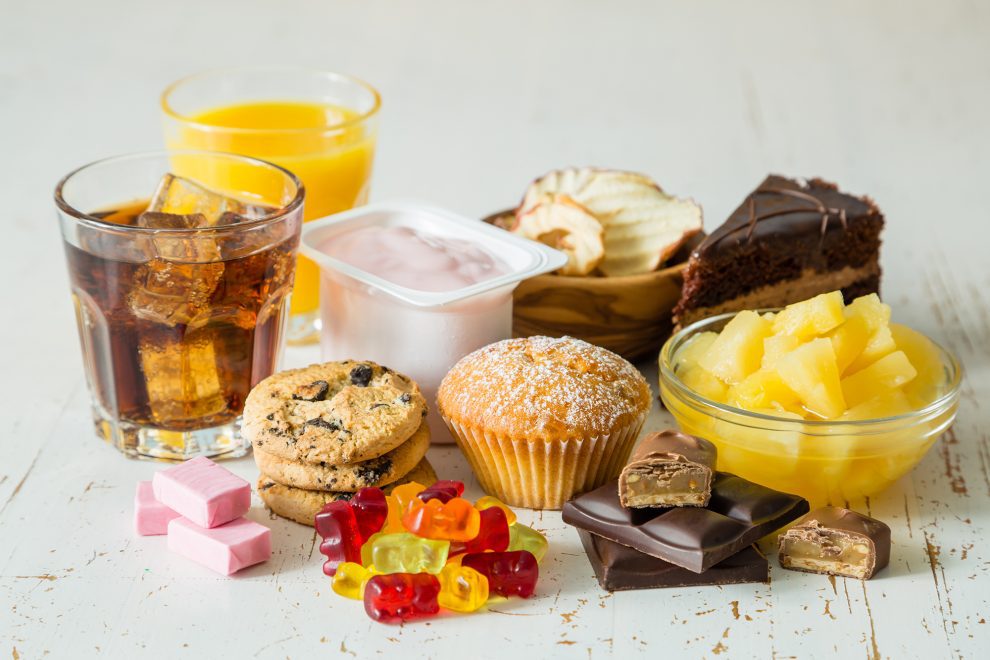So, the sugar tax idea has come up in Australia again (read about it here). Britain will start taxing sugary drinks from 2018. Mexico introduced a similar tax leading to a 12 per cent reduction in sales in 2014, before a modest increase in 2015. While a sugar tax certainly isn’t the complete solution to our health and obesity crisis, it may help Australians reduce their sugar intake write Nutritionist Fiona Kane.
Sydney University’s Professor Stephen Colagiuri; whose research paper will be published in the Medical Journal of Australia next week, found that in 2011-12 Australians consumed an average of 14 teaspoons of free sugar per day. Almost 75 per cent of people aged nine to 18 exceed World Health Organisation’s recommendations for free sugar intake according to his research and data from the Australian Bureau of Statistics. In particular is was found that young men aged 14 to 18 had the biggest sugar habits: averaging the equivalent of 21 teaspoons of free sugar each day, with 10 per cent consuming closer to 38 teaspoons of free sugar per day.
These numbers relate to added sugar in products, not the naturally occurring sugars such as lactose in milk and fructose in fruit. Professor Colagiuri said that accumulating evidence linking weight gain, diabetes and dental problems with sugary drinks showed voluntary responses had failed, Australia is one of the leading markets for sugary drinks, consumed by 47 per cent of children and 31 per cent of adults. Professor Colagiuri believes controls similar to those on alcohol and tobacco are warranted. I’m personally no expert in taxes but I agree we need to do something, if we do have a sugar tax I believe it should be used towards education about the effects of sugar and health treatments for people living with the results of high sugar diet.
Every time this type of discussion comes up, the standard food company line is rolled out again and again, “this is ultimately about personal responsibility”. Food companies love this line; it takes the responsibility completely off them and justifies them encouraging people to still eat their products “in moderation”.
While clearly it is true that we are responsible for our own choices, I agree Dr Aseem Malhotra, London Cardiologist on this matter. He says that to exercise personal responsibility, you need two things: you need the right information and you need choice. Right now we have neither, because the information is confusing and because sugar has become so prevalent in the food environment, it’s very difficult to make healthy choices.
People don’t have a clear understanding of how much sugar is safe or healthy to consume. We also don’t realise how much sugar we are eating. People think it is about how many teaspoons they add to their tea or coffee etc, not realising they are eating lots of sugar every day in so called “healthy foods”. Being a That Sugar Film Ambassador and a practising nutritionist, I know that people choose foods like low fat yoghurts, low fat mayonnaise, cereals or muesli bars or use sauces such as tomato sauce and barbecue sauce not realising the enormous amount of sugar they actually contain.
That Sugar Film Ambassadors believe that free (or added) sugar, need to be listed in teaspoons on the food package labels; most people don’t understand it in grams and that suits the food companies. Food companies add words to labels to deliberately confuse the public such as “low fat” “no cholesterol” “fat free” “added vitamins” “added minerals” “natural”. This is called health washing, adding loads of “healthy” and “natural” sounding words and claims to the front of the package to distract people from actually looking at the nutrition panel and ingredients and make you feel good about purchasing their product. They spend millions of dollars on experts that teach them how to do this.
Unfortunately our dietary guidelines in Australia have only just begun to look at sugar in the last couple of years so it hasn’t been a major factor in our dietary guidelines recommendations. These guidelines are updated so very slowly that it is many years before the current nutritional science knowledge we have now about sugar, will actually translate into guidelines. We have had the “fat is bad” mantra for so long, that even though studies now consistently show natural fats (olive oil, meat, eggs, full fat dairy, fish oil, nuts and seeds avocadoes, coconut oil etc) to be innocent of any wrong doing and actually a requirement for good health, the “fat is bad” mantra is simply set on repeat.
In the meantime schools and many health professionals are still teaching people to eat low fat diets (which more often than not translate to a high sugar diet) and we only blame the poor confused and conflicted consumer saying they should take personal responsibility!
A sugar tax would certainly bring our attention to food products that are high in sugar and at this point I believe that is good thing or at least a step in the right direction.
About Fiona
She is a Nutritionist and That Sugar Film Ambassador and you can find out more about here at www.informedhealth.com.au





















Add Comment